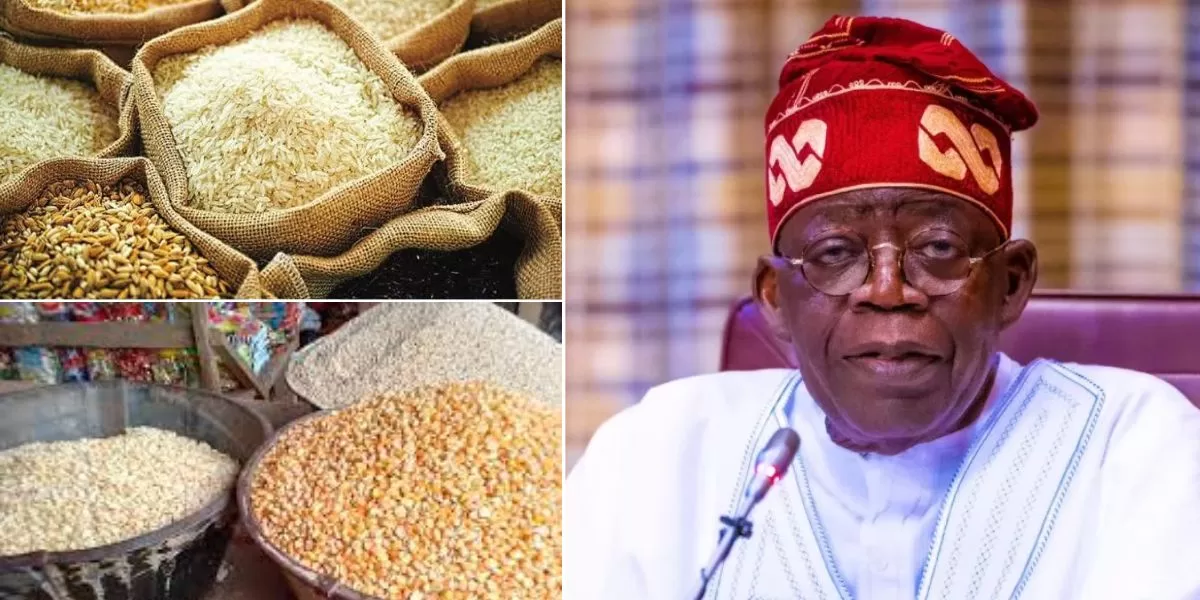President Bola Ahmed Tinubu has approved duty-free importation of major food items like rice, beans and wheat, to cushion the impact of the high food prices Nigerians grapple with since assuming office a year ago.
Special Adviser to the President on Information and Strategy, Bayo Onanuga, said the measures are to be “implemented over the next 180 days,” that is, over the next 6 months.
The presidential spokesperson who quoted the Minister of Agriculture and Food Security Abba Kyari as saying this at a press conference Monday in Abuja, said the president approved a “150-Day Duty-Free Import Window for Food Commodities.”
With this measure, there are expectations that the hardship occasioned by high prices of food commodities will subside to a reasonable level if properly implemented.
Following the removal of fuel subsidy and the consequent floating of naira, Nigerians have been groaning under the yoke food crisis, with prices of the commodities going astronomically high.
Though food items are affordable, but citizens often have the challenge of affordability as a 50kg of rice for instance, currently goes for over N70,000.
At different times, the federal government released grains to the states for onward distribution to the people, with the exercise achieving little or no results following alleged cases of diversion in some instances.
…Relief
And announcing some relief measures in a statement posted Monday on his X handle, Mr Onanuga said: “The Tinubu government unveils measures to overcome high food prices. At a press briefing today, the Minister of Agriculture and Food Security, Senator Abubakar Kyari, said the measures will be implemented over the next 180 days:
“1. A 150-Day Duty-Free Import Window for Food Commodities. a. suspension of duties, tariffs and taxes for the importation of certain food commodities (through land and sea borders) b. These commodities include Maize, Husked Brown Rice, Wheat and Cowpeas c. Under this arrangement, imported food commodities will be subjected to a Recommended Retail Price (RRP).
“(I am aware that some good citizens might be concerned about the quality of the would-be imported food commodities as it relates to the trending worries around the genetic composition of food.) I am glad to reiterate that the Government’s position exemplifies standards that would not compromise the safety of the various food items for consumption.”
Kyari, according to Onanuga , further said: “In addition to the importation by the private sector, the Federal Government will import 250,000MT of Wheat and 250,000MT of Maize. The imported food commodities in their semi-processed state will target supplies to the small-scale processors and millers across the country.
“ Engage relevant stakeholders to set a Guaranteed Minimum Price (GMP) and mop up surplus assorted food commodities to restock the National Strategic Food Reserve.”
The federal government also assured of “continuous ramp-up production for the 2024/2025 farming cycle” through “sustained support to smallholder farmers in the ongoing wet season farming through existing government initiatives, strengthen and accelerate Dry Season Farming across the country,” and also “embark on aggressive agricultural mechanization and development to reduce drudgery, drive down the cost of production and boost productivity.”











